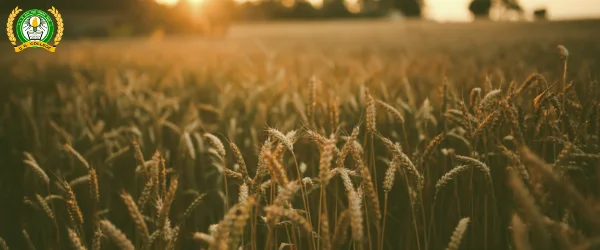M.Sc Agronomy College In Dehradun
February 18, 2024 2024-03-03 18:54M.Sc Agronomy College In Dehradun
A vision to impart in depth knowledge of agricultural sciences
M.Sc Agronomy
M.Sc. Agronomy is a postgraduate Agriculture course. Agronomy is the application of the various soil and plant sciences to soil management and crop production. Subjects studied under this degree are modern concepts in crop production, physiology of drought, herbicides and crop production, physiological aspect of crop yield, principles of crop nutrition, physiology of crop plants, advanced irrigation agronomy, agricultural research organizations, advanced crop ecology, applied conservation agronomy, arid zone agronomy, cropping and farming systems and agro-meteorology. After passing the course, students have many opportunities in various fields.
Eligibility Criteria for M.Sc Agronomy
Aspiring students should have passed B.Sc. (Agriculture) or an equivalent qualifying examination recognized by the University with at least 50% marks in aggregate.


Subjects in M.Sc Agronomy
- Modern Concepts in Crop Production
- Principles and Practices of Soil Fertility and Nutrient Management
- Principles and Practices of Weed Management
- Principles and Practices of Water Management
- Agrometeorology and Crop Weather Forecasting
- Agronomy of Cereal Crop-I (Rice)
- Agronomy of Cereal Crops-II (Maize and Millets)
- Agronomy of Cereal Crops II (Wheat and Barley)
- Agronomy of Pulse Crops (Kharif and Rabi)
- Agronomy of Oil Seed Crops (Kharif and Rabi)
- Integrated Farming 25. Systems and Sustainable Agriculture
- Soil Conservation and Watershed Management
- Stress Crop Production
- Crop Production and System Modelling
- Agronomy of Fiber Crops
- Agronomy of Sugar Crops
- Agronomy of Tuber Crops
- Agronomy of Fodder and Forage Crop
- Cropping Systems and Sustainable Agriculture
- Dry-land Farming and Watershed Management
- Principles and Practices of Organic Farming
- Diagnosis of Nutritional Deficiency in Field Crops and Their Remedial Measure
- Current Trends in Agronomy
- Crop Ecology
- Advances in Crop Growth and Productivity
- Advances in Water Management
- Advances in Weed Management
- Advance Technology in Cereals Production
How is M.Sc. Agronomy Course Beneficial?
Learn about what is the future scope of M.Sc Agronomy
After passing the Master Degree course, students have further teaching and research studies options. They can also join the Indian Agricultural Research Institute (IARI), Delhi as a junior fellow researcher. Candidates can work in the private sector on applied research and product development or engage in basic research, mainly in universities or government agencies. They can also become an agricultural scientists who can also work as consultants to business firms, private clients or to government.
M.Sc. Agronomy Employment Areas
- Farm Manager
- Agronomist
- Research Testing Associate
- Subject Matter Specialist
- Lecturer & Professor
M.Sc Agronomy Programme Fee and details
| Semester Fee | Examination Fee | Eligibility | Affiliation | Course Duration |
|---|---|---|---|---|
| ₹30,000 | As per University Norms | B.Sc Agriculture | Affiliated to Sri Dev Suman UttarakhandUniversity, Badshahithol (Tihri)(A State Govt. University of Uttarakhand) | Two years |
Downloads
Downloads available for M.Sc Agronomy Course
List of download-able files for M.Sc Agronomy in Dehradun, some download buttons may only work when there is a specific file or notification available




